Revolutionary 'sacrificed everything' for workers
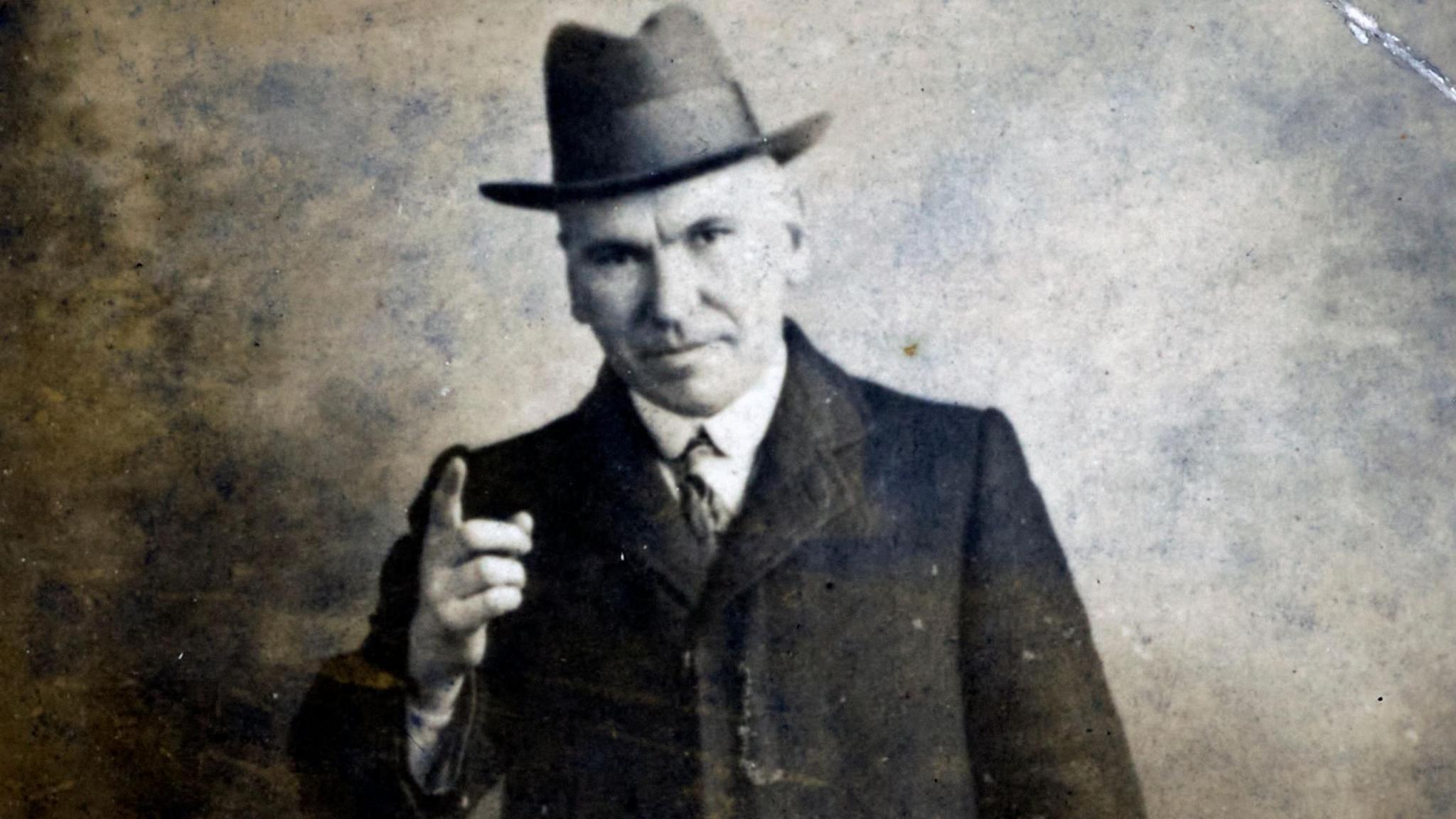
John Maclean - one of the main figures of the Red Clydeside movement
- Published
John Maclean is a hero of the socialist movement, but he is not a widely known figure in history. As the author of a Maclean biography once put it, external, we are now a century on from Maclean’s death and he “is remembered by few people outwith the Scottish Left, and the ceilidh bands that play the John Maclean March”.
Maclean’s story though has always attracted artists. Poets and folk singers remember how this Glasgow schoolteacher tried to advance the rights of working people, and how it cost him his life.
Maclean is now being remembered in a concert at Celtic Connections. Billy Bragg, Karine Polwart, Eddi Reader and Siobhan Miller are among those who will perform on Friday, 19 January to reflect on Maclean and "Red Clydeside".
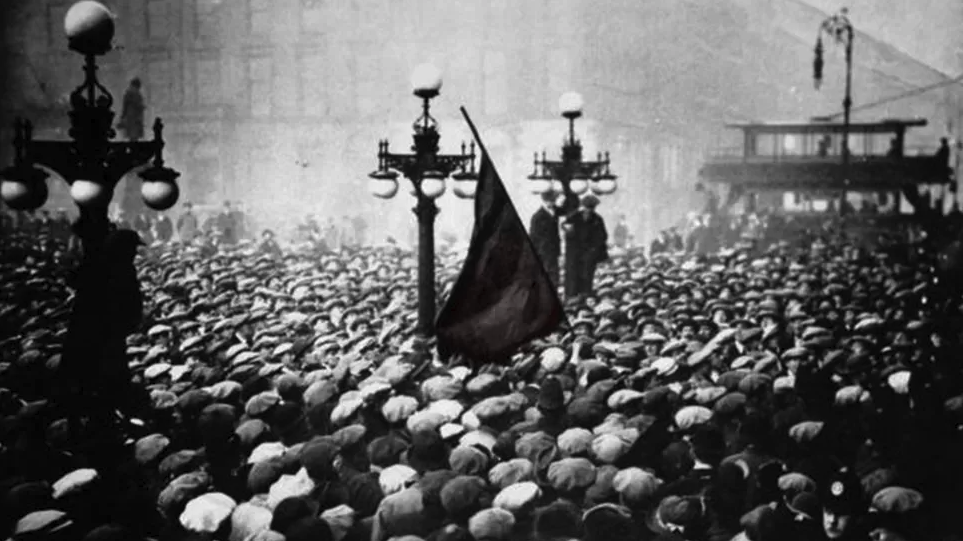
The red flag being raised in George Square during the Battle of George Square, or Bloody Friday, is one of the most iconic photographs in Glasgow's history
Red Clydeside is the name given to a series of events from around 1915 onwards which centred on disputes between the government and others, and the working classes in the Glasgow area who opposed them and felt their conditions were deeply unfair.
It is also the moniker for a period of radical political history in Clydeside.
One of its most famous episodes was the Rent Strikes of 1915, where the women of Glasgow campaigned to resist the rising rent of landlords during a major housing shortage.
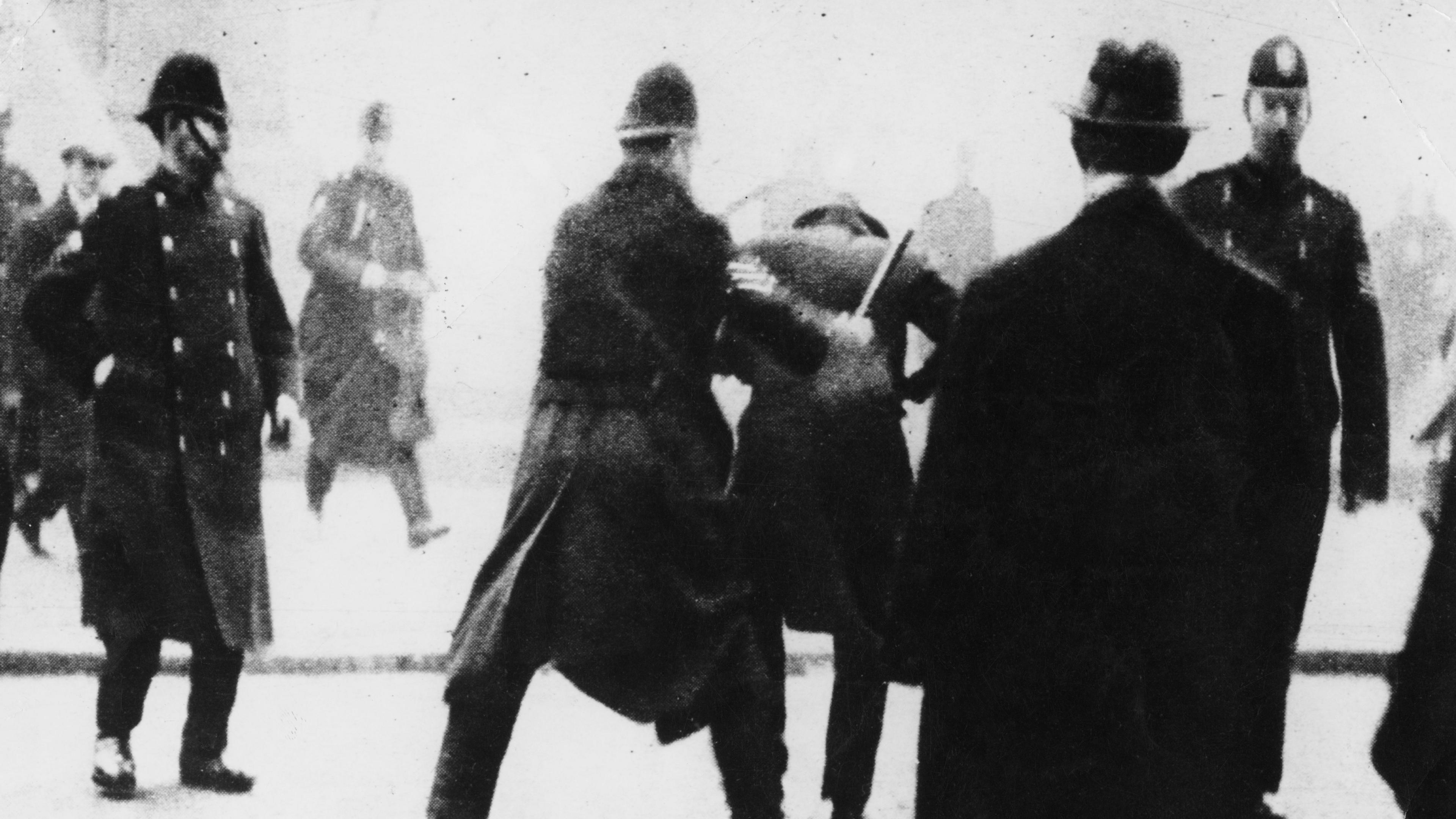
A police officer uses his baton on a striker in Glasgow during Bloody Friday
Another was the Battle of George Square, or Bloody Friday, in January 1919 when thousands of striking workers seeking a cut to working hours clashed with police. A deeply worried British government responded by putting troops on standby.
Maclean, a campaigner who wanted a workers' revolution, was not in Glasgow during Bloody Friday.
According to Henry Bell, the author of a John Maclean biography, Maclean thought the Red Clydeside movement needed more time to build, and he was touring coal mines across Scotland and the north of England to build a wider base of support beyond Glasgow.
Maclean was vehemently against World War One, and he was jailed several times during it for his speeches. For the committed Marxist who campaigned for workers’ rights, nothing was to be gained by the workers of Europe killing each other.
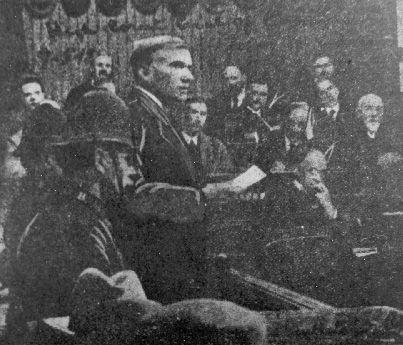
John Maclean's speech from the dock in 1918 is still remembered today by socialists
After Maclean was jailed on the first occasion, he lost his job as a schoolteacher. When he was jailed again in 1918, this time for sedition, Maclean made a speech from the dock that is still celebrated by the Scottish left.
“I wish no harm to any human being,” he said, “but I, as one man, am going to exercise my freedom of speech.
"No human being on the face of the earth, no government is going to take from me my right to speak, my right to protest against wrong, my right to do everything that is for the benefit of mankind.
“I am not here, then, as the accused; I am here as the accuser of capitalism dripping with blood from head to foot.”
John Maclean's daughter Nan Milton spoke to the BBC's Current Account programme in 1973 about her father's life
Maclean was imprisoned in Peterhead and was on hunger strike. His health and personal life suffered.
His daughter Nan Milton reflected on his life in a BBC Current Account documentary in 1973.
She spoke of her mother Agnes’ bitter disappointment that Maclean could not regain his job as a teacher following his first imprisonment, and how she eventually left her husband.
Mrs Milton said: “He exerted every ounce of himself to bring this socialist revolution about. He missed us all and he loved us. It was very heartbreaking for him, but he had to keep on. He felt it was now or never.”
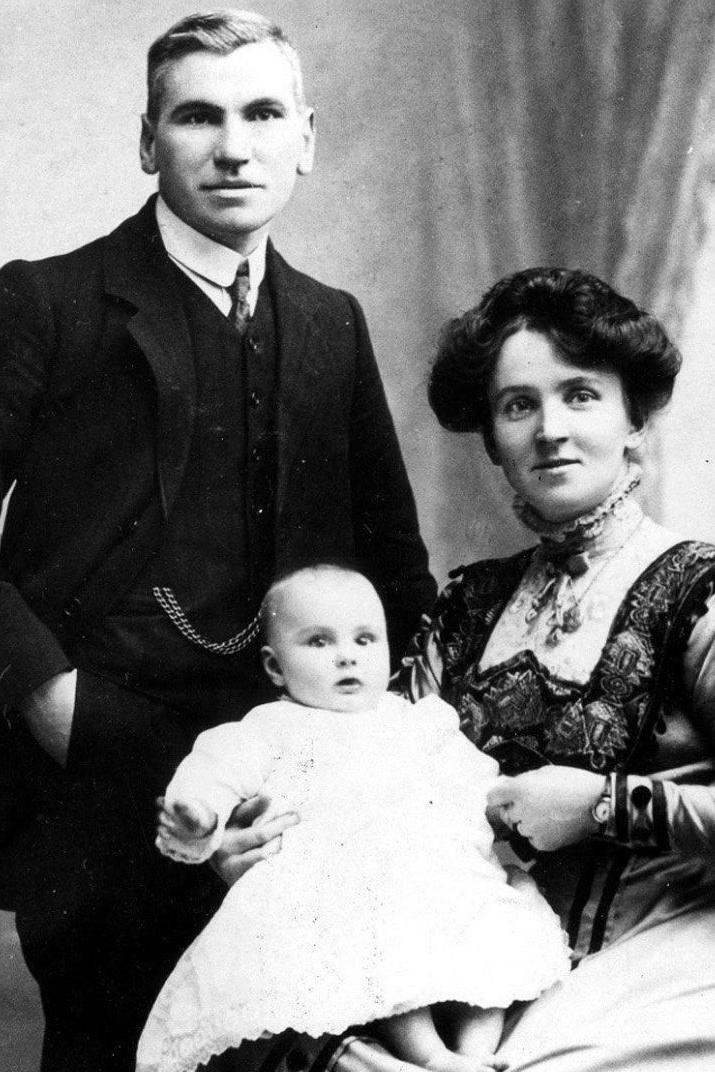
John Maclean, pictured with his wife Agnes and their oldest daughter Jean Wilson
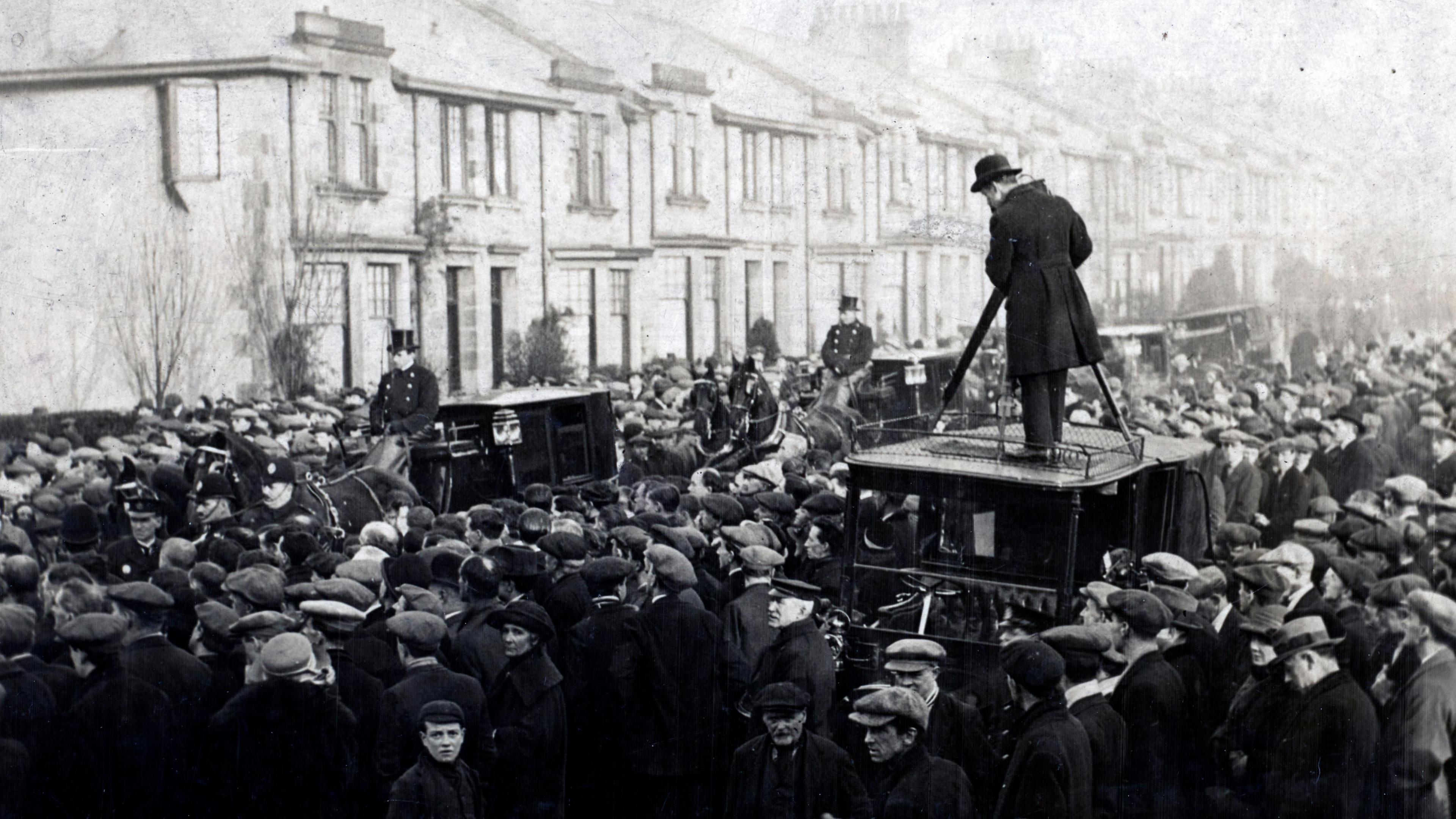
Thousands of people lined the streets to witness John Maclean's coffin going past
By 1922, Maclean - according to his daughter - felt the movement had “missed the boat”.
He reunited with his wife in the final months of his life, as he suffered from ill-health caused by his imprisonments. Maclean died in 1923, aged 44. Thousands lined the streets to see his coffin.
In Pollokshaws, where Maclean was from, he is remembered by a memorial cairn and a stained-glass window in the nearby library.
Author Henry Bell, who has helped to put the Celtic Connections concert together, believes Maclean should be remembered as the teacher of Red Clydeside.
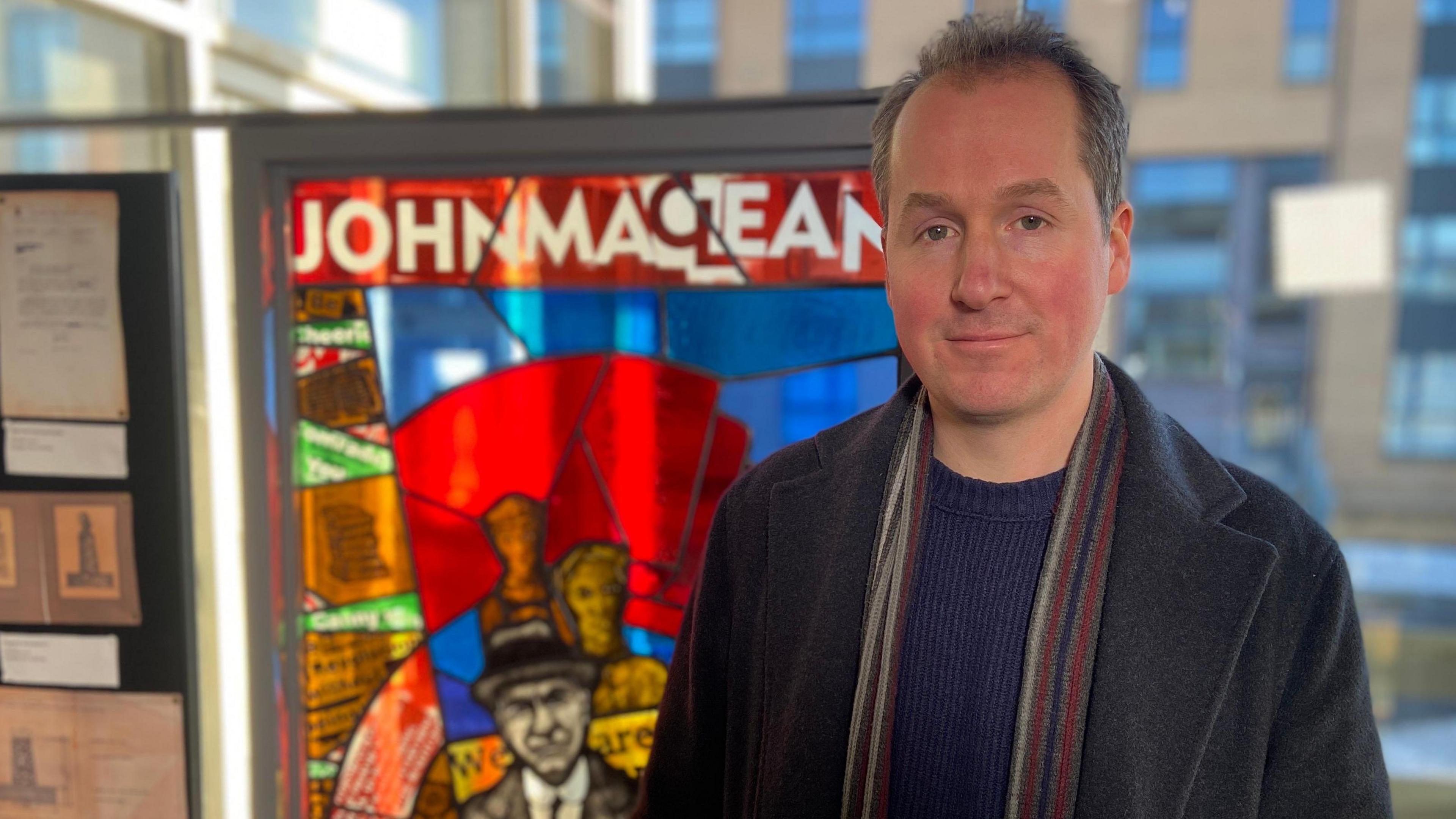
Author Henry Bell, next to the John Maclean stained-glass window tribute in Pollokshaws Library
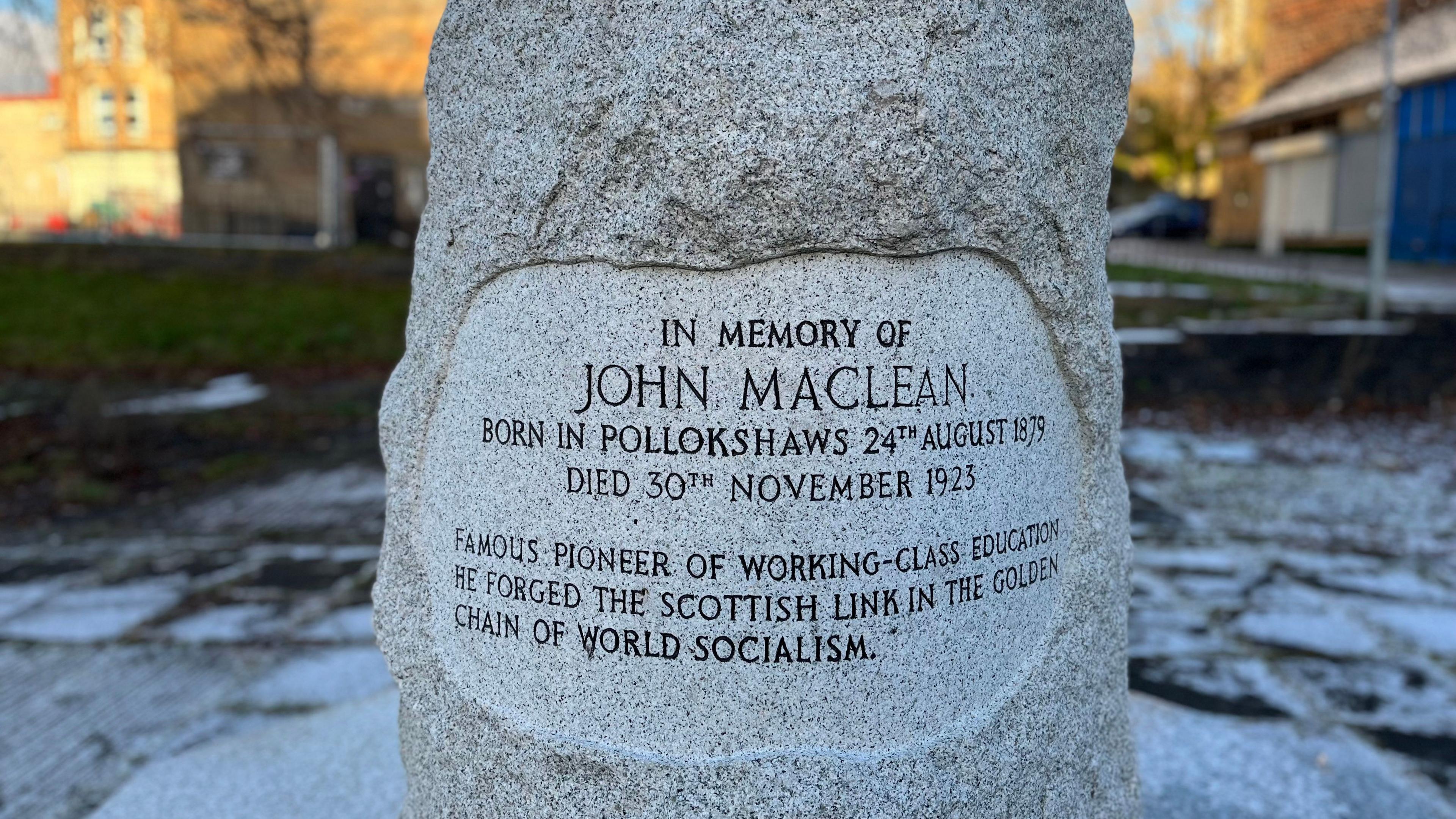
John Maclean is remembered on a small memorial cairn in Pollokshaws - the community where he was born
He said: “From as early as the 1900s, Maclean is organising economics classes across the city and hundreds and hundreds of people are learning about Marxism, and learning what capitalism is and what it is doing to them in their everyday lives.
“The key figures of Red Clydeside - like Willie Gallacher, Helen Crawfurd, Jimmy Maxton, Davie Kirkwood - these people came up through his classes.”
That major role is one of the reasons Maclean was celebrated by Lenin in Russia.

BBC Radio 2 Folk Award winner Siobhan Miller has been instrumental in putting the Celtic Connections concert together
For the folk singer Siobhan Miller, who is performing at the concert and has helped to organise it, she describes the project as “a real journey”.
"The life and work of John Maclean has inspired so many songwriters and poets in the 100 years since his death, and we are touching on as many of those as we can," she said.
"There are so many artists coming together to bring John Maclean’s story to life.
“I grew up with these songs, but being involved in this concert has given me a whole new context for it. It has been amazing to be part of.”
Nan Milton, reflecting in the 1973 documentary, described her father’s life as a “Greek tragedy”.
“The very qualities that made him famous - the incorruptibility, the indomitability - were the qualities that lead to his early death," she said.
“He sacrificed everything for the workers.”